Publications
Articles, publications, books, tools and multimedia features from the U.S. Institute of Peace provide the latest news, analysis, research findings, practitioner guides and reports, all related to the conflict zones and issues that are at the center of the Institute’s work to prevent and reduce violent conflict.
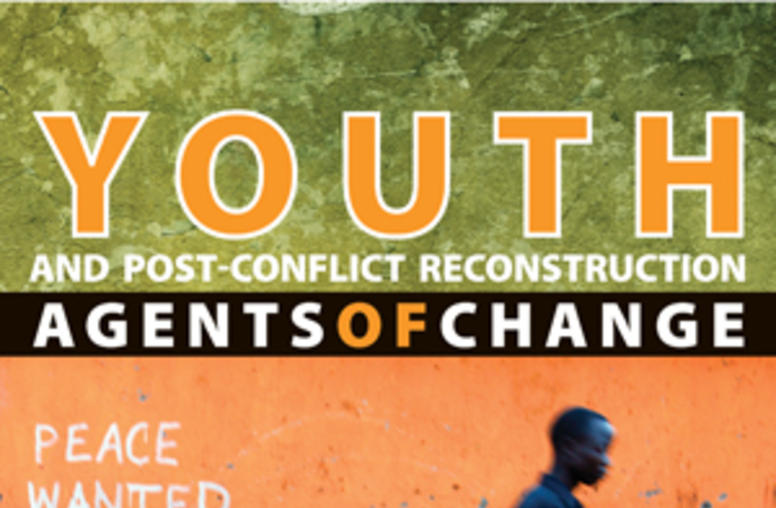
Youth and Post-Conflict Reconstruction
In conflict and post-conflict situations, youth constitute a reservoir of energy. Some young people choose to fight or are forced into a life of violence. Others are able to work to improve their communities, contribute to peacebuilding, reconciliation and reconstruction, and become invested in their countries’ future peace. Youth and Post-Conflict Reconstruction: Agents of Change uses three cases of post-conflict reconstruction—Mozambique, the Democratic Republic of the Congo, and Kosovo—...
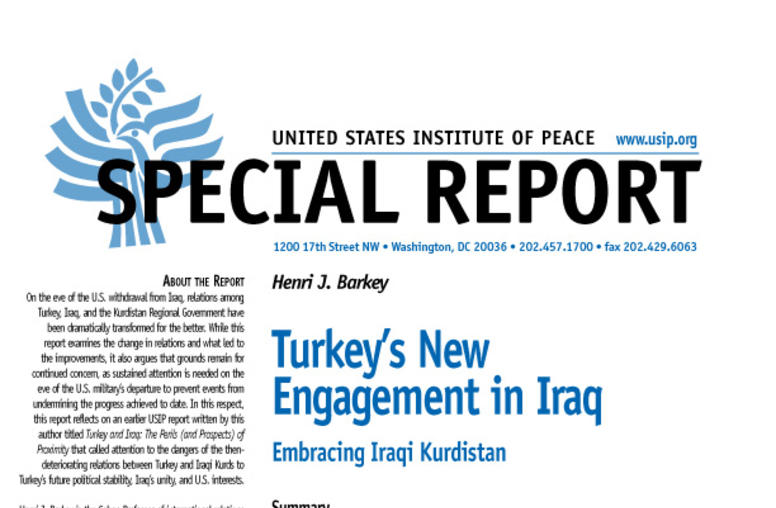
Turkey’s New Engagement in Iraq
On the eve of the U.S. withdrawal from Iraq, relations among Turkey, Iraq, and the Kurdistan Regional Government have been dramatically transformed for the better. While this report examines the change in relations and what led to the improvements, it also argues that grounds remain for continued concern, as sustained attention is needed on the eve of the U.S. military’s departure to prevent events from undermining the progress achieved to date.
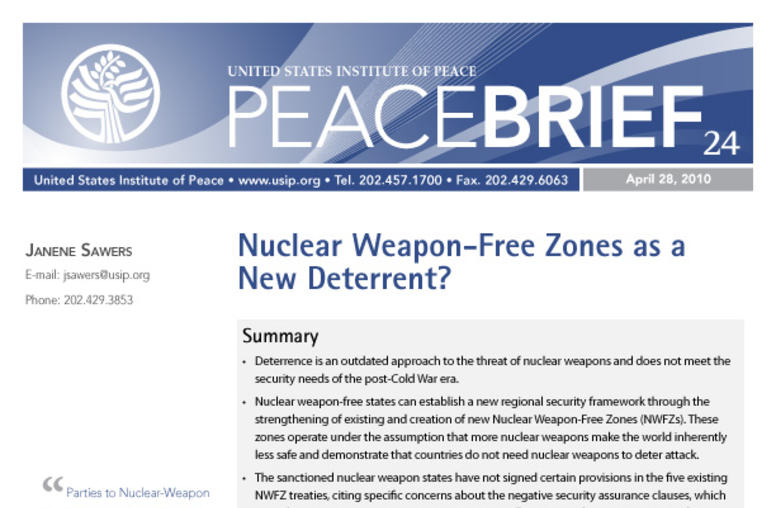
Nuclear Weapon-Free Zones as a New Deterrent?
Nuclear weapon-free states can establish a new regional security framework through the strengthening of existing and creation of new Nuclear Weapon-Free Zones (NWFZs). These zones operate under the assumption that more nuclear weapons make the world inherently less safe and demonstrate that countries do not need nuclear weapons to deter attack.
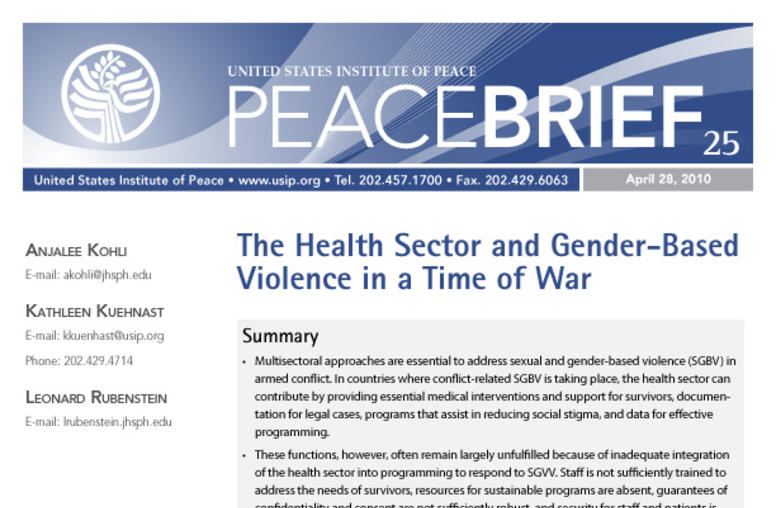
The Health Sector and Gender-Based Violence in a Time of War
The challenges of effectively addressing sexual and gender-based violence in war torn communities are daunting. This Peace Brief describes the pivotal role the health sector can play, obstacles to its exercising these needed functions, and steps that can be taken to contribute to developing support for survivors as part of an integrated approach.
The Sinking of South Korea’s Naval Vessel
The Cheonan, a 1,200-ton South Korean naval vessel, sank on March 26 when an explosion split it apart in one of the country’s worst naval disasters. North Korea has officially denied involvement and accused South Korean President Lee Myung-bak of using this tragedy to bolster support for his hard-line North Korea policy.
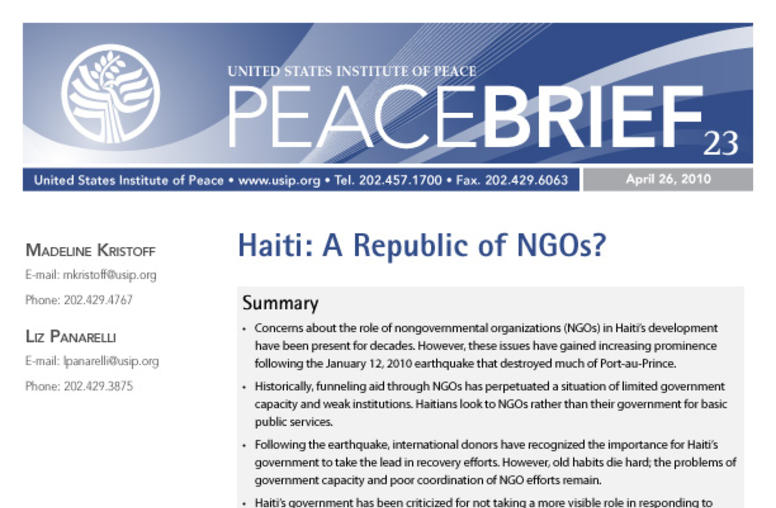
Haiti: A Republic of NGOs?
Concerns about the role of nongovernmental organizations (NGOs) in Haiti’s development have been present for decades. However, these issues have gained increasing prominence following the January 12, 2010 earthquake that destroyed much of Port-au-Prince.
The Kurds in Syria: Fueling Separatist Movements in the Region? (Arabic Edition)
The Kurds of Syria, in contrast to the Kurds of Iraq and Turkey, are little known in the West, but they have similarly strained relations with the state that governs them and face human rights abuses as a minority. The Syrian state’s repression of its Kurdish population, which thus far has not sought a separate state, may contribute to Kurdish claims for self-determination in Turkey, Iran, and Iraq.
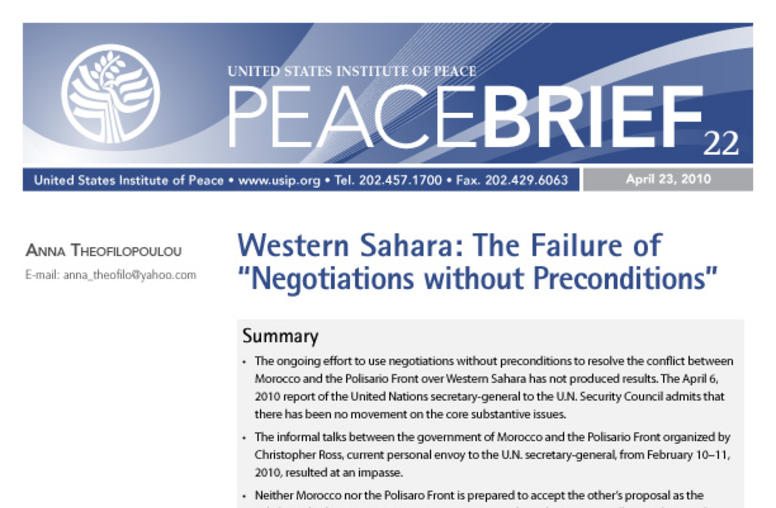
Western Sahara: The Failure of "Negotiations without Preconditions"
The ongoing effort to use negotiations without preconditions to resolve the conflict between Morocco and the Polisario Front over Western Sahara has not produced results. The April 6, 2010 report of the United Nations secretary-general to the U.N. Security Council admits that there has been no movement on the core substantive issues.
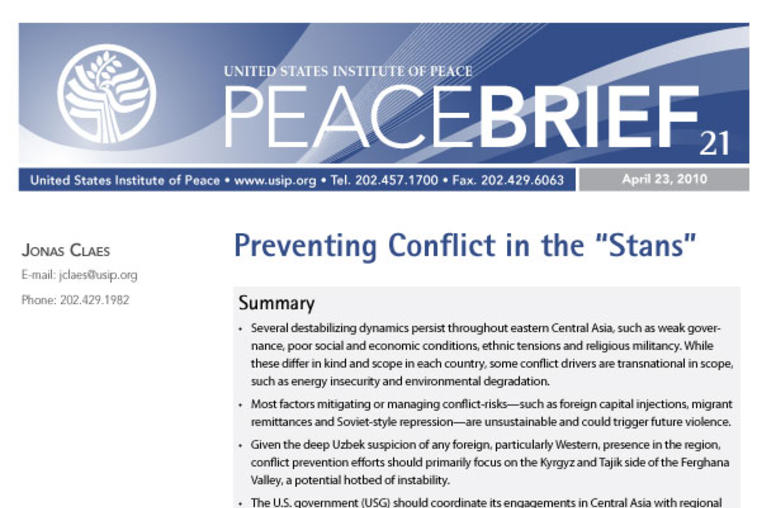
Preventing Conflict in the "Stans"
Several destabilizing dynamics persist throughout eastern Central Asia, such as weak governance, poor social and economic conditions, ethnic tensions and religious militancy. While these differ in kind and scope in each country, some conflict drivers are transnational in scope, such as energy insecurity and environmental degradation.
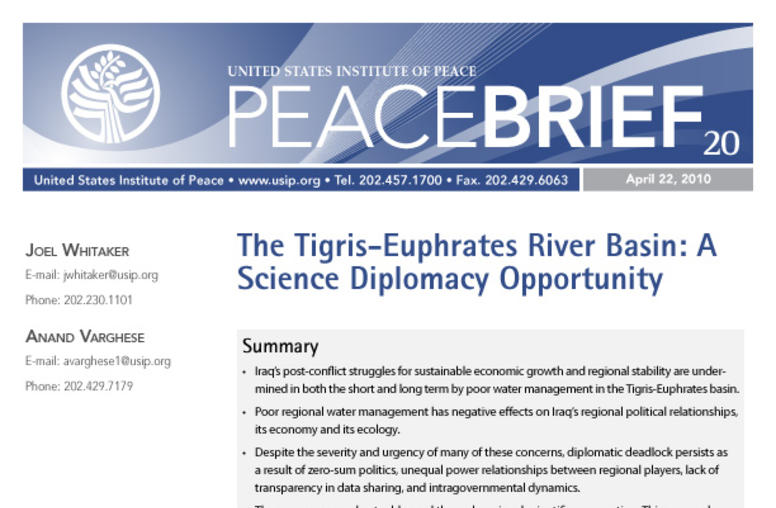
The Tigris-Euphrates River Basin: A Science Diplomacy Opportunity
Iraq’s post-conflict struggles for sustainable economic growth and regional stability are undermined in both the short and long term by poor water management in the Tigris-Euphrates basin. Poor regional water management has negative effects on Iraq’s regional political relationships, its economy and its ecology.